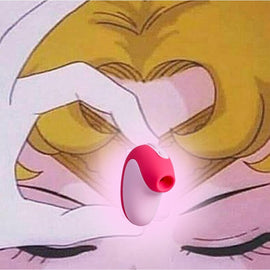Let's Talk About Pain During Sex

Are you surprised to learn that painful sex is common? Sadly, due to the taboo nature of the subject matter - most that experience pain with sex feel that they are “the only ones” because no one talks about it. The shame is real and the feeling is very isolating. Even though it is common, it is not normal. Would you believe that up to 20% of all reproductive-age girls and women experience some level of pain or discomfort with sexual activities?
Painful sex can be present from the teenage years through menopause with many different factors playing into the result of pain. The physical factors could include a sports injury, childbirth trauma, vaginal tissue dryness related to menopause to name a few. The GOOD news is that there are strategies that can be used to CHANGE the result and allow for pain-free sex.
Did you know that there are physical therapists and even a handful of medical doctors who specialize in treating women (and men) who have pain with sex? In fact, there are! I have specialized in the treatment of pelvic pain for over 20 years and have been able to help numerous women (and men) be able to resume having sex - or allow them to START having sex for the first time once their pain is managed.
Pelvic Floor Physical Therapists are a highly specialized group of professionals that have an extraordinary grasp of how our bodies can create an output of pain during sex (known as dyspareunia). Part of our function as physical therapists is to work with our patients to sort through the various pain triggers, which can come from pelvic/abdominal muscles, nerves, blood supply, bladder, bowel, uterus, hormones, nutritional and emotional factors. can all get mumble/jumbled together (technical term). It’s our job to work with our patients to sort through the influencing factors and then come up with a game plan together for how to make it better. Once diagnosed appropriately, we can devise a plan for how to make it better.
Most of the time, pain with sex is not exclusively due to musculoskeletal issues, but hormonal, bladder, bowel, dietary and psychological influences as well. Physical therapists can help to network you with a team of specialists that you may need to allow you to improve. One physician that I have collaborated with on an educational DVD program, "Pain Down There - A Guide for Females with Persistent Genital and Sexual Pain, has been working for almost 2 decades developing a protocol for physicians and other healthcare practitioners to use effective diagnosis and management of pelvic pain. His name is Dr. Echenberg and more information on him is located in the resource section.
Before we go any further - let's create a visual. Picture a boardroom with people sitting in chairs around that table inside your brain. Now picture all of them giving you credible evidence that sex is going to hurt. Stay with me, folks. It will start to make sense soon.
Next, I want you to visualize the body parts in your pelvis. You have your bladder, bowel, uterus (or prostate), vaginal canal, rectal canal and vulva (or penis). You also have muscles and nerves and blood supply.
Each one of these body parts in your pelvis- has a representative sitting up in the brain in one of those boardroom chairs that they are in CONSTANT communication with gaining evidence whether or not sex is going to hurt.
Let’s say, for example, you have just had a baby eight months ago and had an episiotomy,(this is when there is not quite enough room for baby to come out and an incision is made to your tissue at your vaginal opening to allow more space) and now you have pain with initial penetration. Your bladder and bowels are “normal” - your period hasn't started yet as you have been nursing and you and your partner couldn’t be better.
What messages will your brain now receive from your body parts in your pelvis?. The bladder and bowels and uterus are not alarmed, the “emotional” representative is relaxed - but the vaginal representative is getting alarm bells from the episiotomy scar tissue - but knows that once the penis (or finger or toy) is past the scar - all is good. The outcome of this sexual encounter is superficial dyspareunia - meaning in this case - pain with initial penetration that likely quiets down quickly after sex.
Let’s change the scenario. You had a baby eight months ago and had an episiotomy. Now you have pain with sitting and with bowel movements, and you have been having back and hip pain from lifting the baby carrier. Your bladder is going to the bathroom a lot- you haven’t started your period yet as you have been nursing and you and your partner are on the rocks because they are gone all the time, and you are not feeling loved.
Now, when you attempt sex, the board members are getting major alarm bells; the bladder is agitated from the pelvic tension related to the back and hip pain. The bowels are aggravated since the vaginal canal is neighbors with the rectal canal, you have been having pain with bowel movements. The “emotional” "board member" is fired up because they are anxious about this encounter - And the vaginal representative is getting alarm bells from the episiotomy scar tissue. The outcome of this is intense dyspareunia at the level of the scar and throughout the vaginal canal and pain may last for hours after intercourse. The majority of the board members got credible evidence that sex was going to be painful and so it was.
So how do we calm our committee members in our brain? Well, first we need to figure out which ones are aggravated. And this is where the PT evaluation comes into play!. During the evaluation, we ask many questions about the function of the bladder and bowel, menstruation history, and ob-gyn history. Then we do a physical examination of the back, hips, and pelvis to determine if there are any dysfunctional muscle groups. We also assess scar tissue and how it moves in the area of the abdomen, vaginal opening, deep vagina and pelvic region. We also want to address the patient’s understanding of why they are experiencing the pain, as they often have good insight. Questionnaires, along with a good interview, can help establish the emotional state of the patient and what she (or he) believes about the pain and the ability to improve.
Based on the findings, the PT will help determine who needs to be part of your team. If the pain is ONLY coming from tight musculature of the pelvic floor, meaning the muscles are tight, then physical therapy can be a stand-alone treatment. This would consist of manual therapy techniques, instruction in hip and pelvic opener exercises and some relaxation breathing as some examples of how physical therapy can help.
If pain appears to be coming from tight pelvic muscles due to other factors such as diarrhea, urinary urgency or frequency then alternative strategies will need to come into play. We would determine possible causes for your diarrhea such as discussion of certain types of food that would “irritate” the GI tract and discuss ways to help make the GI tract happier and will often refer to a nutritionist to assist with better determining triggers for the unhappy gut. We would then introduce strategies to minimize the bladder urgency and frequency depending on the underlying cause of these symptoms (worthy of an entirely different article).
If pain seems to be related to deteriorated tissue health (meaning very dry and thin; related to decreased estrogen from menopause or other conditions that affect levels of estrogen) then consulting with the Ob-Gyn for various treatment options can be best. Addressing tissue health can include hormone replacement therapies (if appropriate) or use of new medical technology such as Mona Lisa Laser to improve the collagen production and health of the vaginal tissue. Once the tissue is healthier, this can take away a “trigger” for pain with sex.
There are some who may be affected by how they feel about sex, how they relate to their partner, or how they've processed fears about painful sex in the past. In these circumstances, a counselor, psychologist, or sex therapist would be a helpful addition to the team. These professionals can help with strategies to change the negative thoughts of “board members” in the brain that have been very convincing in telling you that sex is painful.
Working with an integrated team of PTs and counselors, doctors, nutritionists and mental health professionals can be a powerful way to help you to get back to normal-- allowing for enjoyable sex without pain.
If you would like to discuss this further with me - you can find me at Maven, a digital health platform for women. Along with myself, there are many women’s health practitioners ready, willing and able to answer your questions.
By Karen Liberi, MS MPT WCS
For good resources to learn more, you can also go to:
https://www.bridgeforpelvicpain.org/
https://www.paindownthere.com/
http://www.TheEchenbergInstitute.com
To find a PT who specializes in pain with sex:
http://pt.womenshealthapta.org/

Latest Articles

A Hot and Quick Guide to BV, UTIs, and Yeast Infections

9 Acts of Queer Resistance to Know in Addition to the Stonewall Riots








